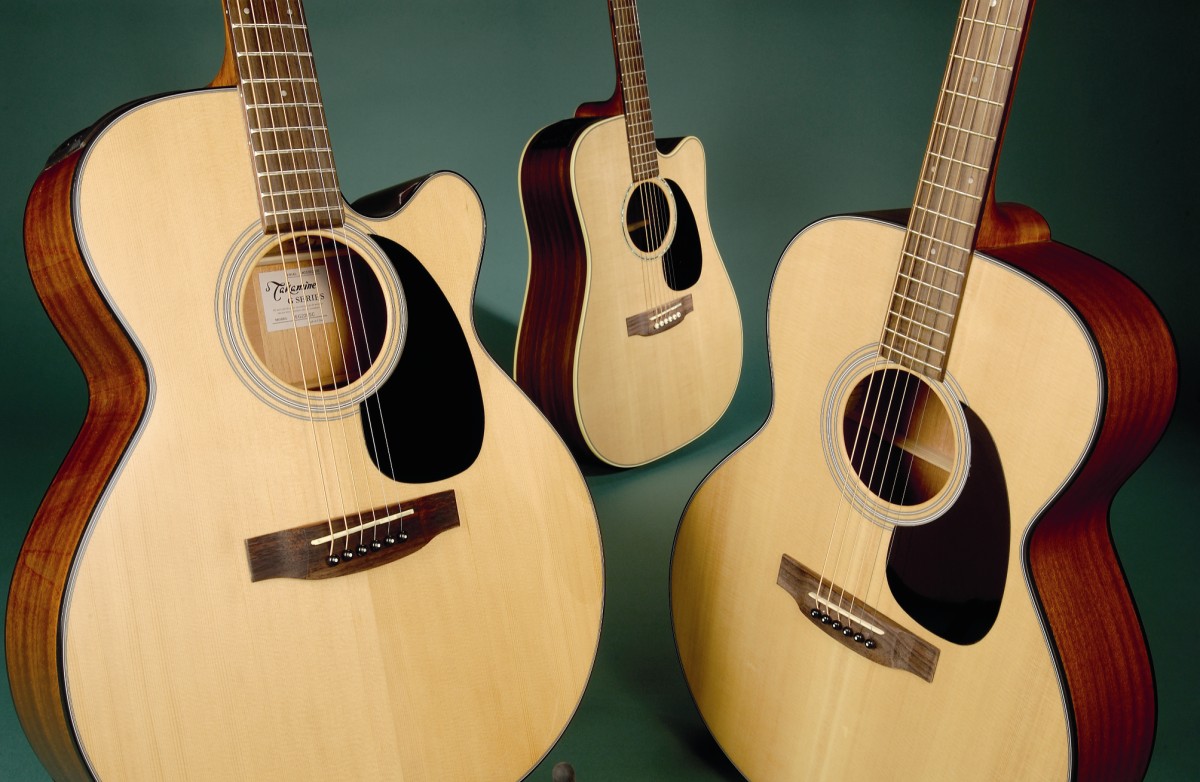MusicRadar Verdict
The price is pitched at a pretty spot-on level for what you're getting.
Pros
- +
Clean construction and good, 'future safe' angle on the neck.
Cons
- -
Relatively lightweight acoustic sound.
MusicRadar's got your back
With most major guitar manufacturers now using Chinese facilities in order to remain competitive, Takamine has sensibly followed suit.
Production of high-end models will continue in Japan, but G Series acoustics will now be built in China (as well as Korea and Taiwan).
Korg UK (Takamine's UK distributor) endeavours to keep its Takamine range as logical and well-pruned as possible.
But there may be some confusion as residual stock of certain discontinued G Series models will still be on sale while lower-priced Chinese-built replacements start appearing, some with the same model codes.
Overview
Very similarly constructed to the dreadnought, this cutaway NEX mini-jumbo's differences are either obvious or can be referenced in the spec check.
The EG220SC offers a three-band black/white soundhole rosette, black body binding with matching heel cap and seam inlays for the back and sides, and an even-coated gloss body.
The TP4 preamp follows the same new look format as the TK-40, but is paired down to the absolute basics.
Want all the hottest music and gear news, reviews, deals, features and more, direct to your inbox? Sign up here.
With matching neck dimensions and the same well-judged neck geometry, the EG220SC is also almost identical to play, but many find this compact NEX body style more ergonomic.
Sounds
This guitar's acoustic tone doesn't benefit from direct comparison with a Takamine dreadnought. As a smaller bodied guitar it is less boomy, but there's generally less 'oomph', and little else that would sway you.
However, if a lighter, smoother, more chirpy tone is what you want, you have this option. Amplified, typically, the sound is immediately more generic and more similar to a Takamine dreadnought's electro tone, but you can still detect that this guitar sounds inherently thinner and relatively brighter.
With only EQ to play with, you'll be glad the TP4 preamp offers some functional midrange contouring and treble pruning.
